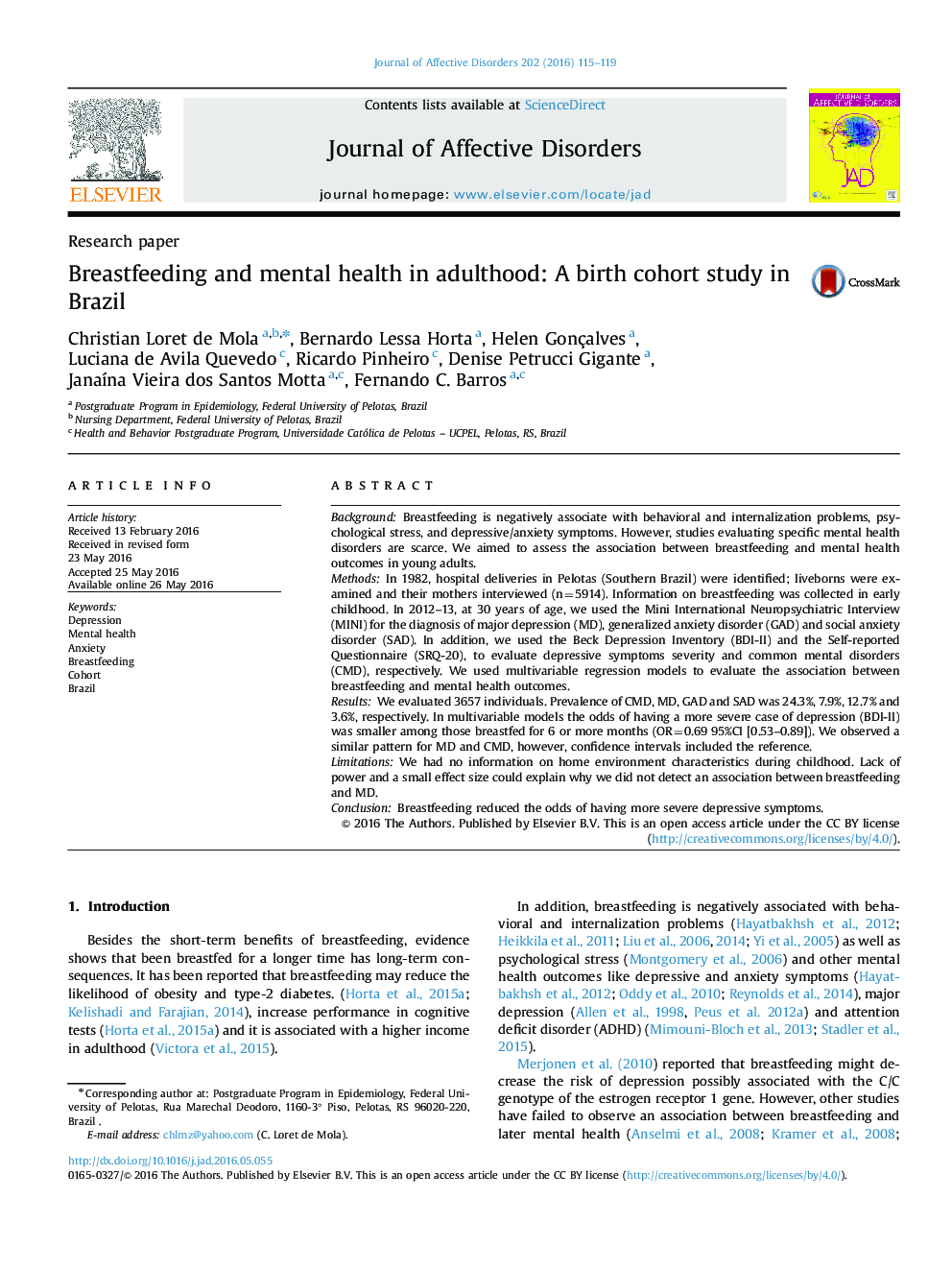| کد مقاله | کد نشریه | سال انتشار | مقاله انگلیسی | نسخه تمام متن |
|---|---|---|---|---|
| 6229937 | 1608123 | 2016 | 5 صفحه PDF | دانلود رایگان |
- Breastfeeding reduced the odds having more severe depressive symptoms in young adults.
- The pattern of association was similar in all depressive like outcomes.
- The effect of breastfeeding over major depression might be small.
- Socioeconomic residual confounding is unlikely in this cohort.
BackgroundBreastfeeding is negatively associate with behavioral and internalization problems, psychological stress, and depressive/anxiety symptoms. However, studies evaluating specific mental health disorders are scarce. We aimed to assess the association between breastfeeding and mental health outcomes in young adults.MethodsIn 1982, hospital deliveries in Pelotas (Southern Brazil) were identified; liveborns were examined and their mothers interviewed (n=5914). Information on breastfeeding was collected in early childhood. In 2012-13, at 30 years of age, we used the Mini International Neuropsychiatric Interview (MINI) for the diagnosis of major depression (MD), generalized anxiety disorder (GAD) and social anxiety disorder (SAD). In addition, we used the Beck Depression Inventory (BDI-II) and the Self-reported Questionnaire (SRQ-20), to evaluate depressive symptoms severity and common mental disorders (CMD), respectively. We used multivariable regression models to evaluate the association between breastfeeding and mental health outcomes.ResultsWe evaluated 3657 individuals. Prevalence of CMD, MD, GAD and SAD was 24.3%, 7.9%, 12.7% and 3.6%, respectively. In multivariable models the odds of having a more severe case of depression (BDI-II) was smaller among those breastfed for 6 or more months (OR=0.69 95%CI [0.53-0.89]). We observed a similar pattern for MD and CMD, however, confidence intervals included the reference.LimitationsWe had no information on home environment characteristics during childhood. Lack of power and a small effect size could explain why we did not detect an association between breastfeeding and MD.ConclusionBreastfeeding reduced the odds of having more severe depressive symptoms.
Journal: Journal of Affective Disorders - Volume 202, 15 September 2016, Pages 115-119
